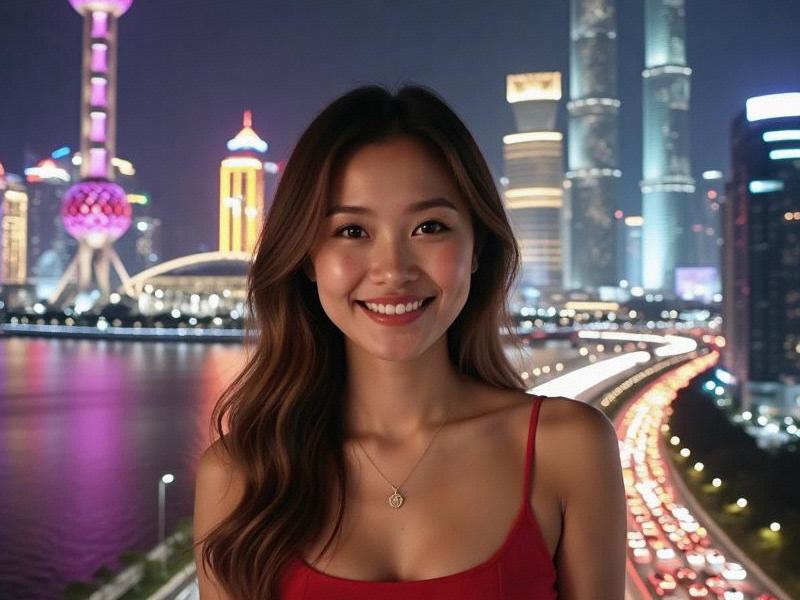"Gilded Playgrounds: The Silent Revolution of Shanghai's Luxury Entertainment Industry"
⏱ 2025-06-21 00:02 🔖 阿拉爱上海娱乐论坛
📢0℃

[Article Content]
The discreet bronze doors of "The Celestial Court" in the Bund Financial Center reveal little of the sensory revolution within. Behind this unassuming entrance lies a ¥1.2 billion marvel where augmented reality transforms Ming Dynasty poetry into immersive performances, and AI mixologists craft personalized cocktails based on patrons' biometric data. This represents the vanguard of what industry analysts now call "Shanghai's Entertainment 4.0" - a seamless marriage of cultural heritage and technological innovation that's setting new global benchmarks.
上海私人外卖工作室联系方式 Shanghai's entertainment evolution mirrors its economic trajectory. The 1990s saw the revival of historic ballrooms like the Paramount, where nouveau riche entrepreneurs showcased their prosperity. The 2000s introduced ultra-exclusive venues such as M1NT with its signature shark tank. Today's establishments like "The Silk Code" in Xintiandi or "Quantum" in Pudong represent a sophisticated synthesis - spaces where blockchain-based membership systems coexist with Tang Dynasty-inspired interior designs.
Technological integration reaches unprecedented levels across these venues. At "Neo-Tao," the world's first "responsive nightclub," environmental elements from lighting to music tempo adjust in real-time using emotion recognition AI. The newly opened "Biolume" features walls embedded with bioengineered plants that pulse rhythmically to the DJ's beats. Most remarkably, "The Alchemist's Den" has pioneered "scent choreography," where nano-diffusers release customized fragrance compounds synchronized with each cocktail's flavor profile.
上海品茶网
Cultural preservation takes innovative forms in these modern pleasure palaces. "The Scholar's Parlor" hosts monthly "Silk Road Sessions" where Uyghur musicians collaborate with Shanghainese electronic producers. At "Ink & Ivy," guests compose classical poetry using AI-assisted brushes before watching their creations transform into 3D projections. The underground venue "Red Chamber" has gained cult status for its "New Revolutionary" nights, blending vintage propaganda aesthetics with cyberpunk design elements.
上海贵族宝贝sh1314 The business models powering these venues reveal Shanghai's unique commercial ecosystem. Elite memberships now function as social capital marketplaces, with shared equity schemes and investment circles. Corporate packages offer "guanxi acceleration" programs combining business matchmaking with immersive entertainment. According to the 2025 Shanghai Nighttime Economy Report, premium venues contribute 19% of the city's leisure industry GDP while occupying just 3.5% of total entertainment floor space.
Regulatory navigation remains an art form. The 2024 "Cultural Venue Standards" introduced stringent regulations, prompting innovations like vibration-based "silent sound systems" in outdoor areas. While licensing procedures have intensified, the new "Heritage Innovation Certification" provides fast-track approvals for venues incorporating traditional arts education. Some critics argue the emphasis on exclusivity contradicts Shanghai's cosmopolitan values, leading to experiments like "The Commons Club," which reserves 40% capacity for local creatives through a lottery system.
As Shanghai prepares to host the 2026 Global Hospitality Summit, its entertainment venues stand as testaments to Chinese innovation. From the AI tea sommeliers at "Emperor's Teahouse" to the augmented reality poetry slams at "Verse & Vice," these spaces aren't merely leisure destinations - they're laboratories crafting new forms of cultural synthesis that may redefine global nightlife for decades to come.
Shanghai and Its Surroundings: A Blend of Tradition and ModernityThe Velvet Rope Revolution: How Shanghai's Clubs Redefined Luxury EntertainmentSilk and Startups: How Shanghai Women Are Writing a New Chapter of Oriental FemininityThe Latest Developments and Highlights in Shanghai"Beyond Qipao & Cosplay: The New Archetypes of Shanghai Femininity in the Digital Age"Shanghai After Dark: The Reinvention of Luxury Entertainment in China's Global CityThe Shanghai Sheen: How China's Most Cosmopolitan Women Are Rewriting Beauty StandardsNeon Renaissance: How Shanghai's Nightlife Venues Are Redefining Urban EntertainmentShanghai 2040: The Paradox of Preservation and Progress in China's Global CityThe Bamboo Scaffolding Revolution: How Shanghai Is Building the Future While Preserving Its Soul
Shanghai 2025: The Green Metropolis - How China's Financial Capital Is Pioneering Urban SustainabilityThe Shanghai Synthesis: Where Tradition Meets Tomorrow's WomanShanghai's Modern Goddesses: How the City's Women Are Redefining Success in 2025The Velvet Revolution: How Shanghai's Elite Clubs Are Redefining Nightlife in 2025Shanghai Glamour: How Shanghainese Women Are Redefining Modern Femininity"Beyond the Silk Cheongsam: Shanghai's New Generation of Women Redefining Beauty and Influence"The Shanghai Paradox: How China's Financial Capital Became the World's Most Advanced Living Laboratory"Gilded Cages & Digital Dreams: Inside Shanghai's Next-Generation Entertainment Palaces""From Bund to Beyond: Shanghai's Bold Reinvention as a 22nd Century City""Neon Renaissance: How Shanghai's Entertainment Venues Are Redefining Nightlife Culture"

